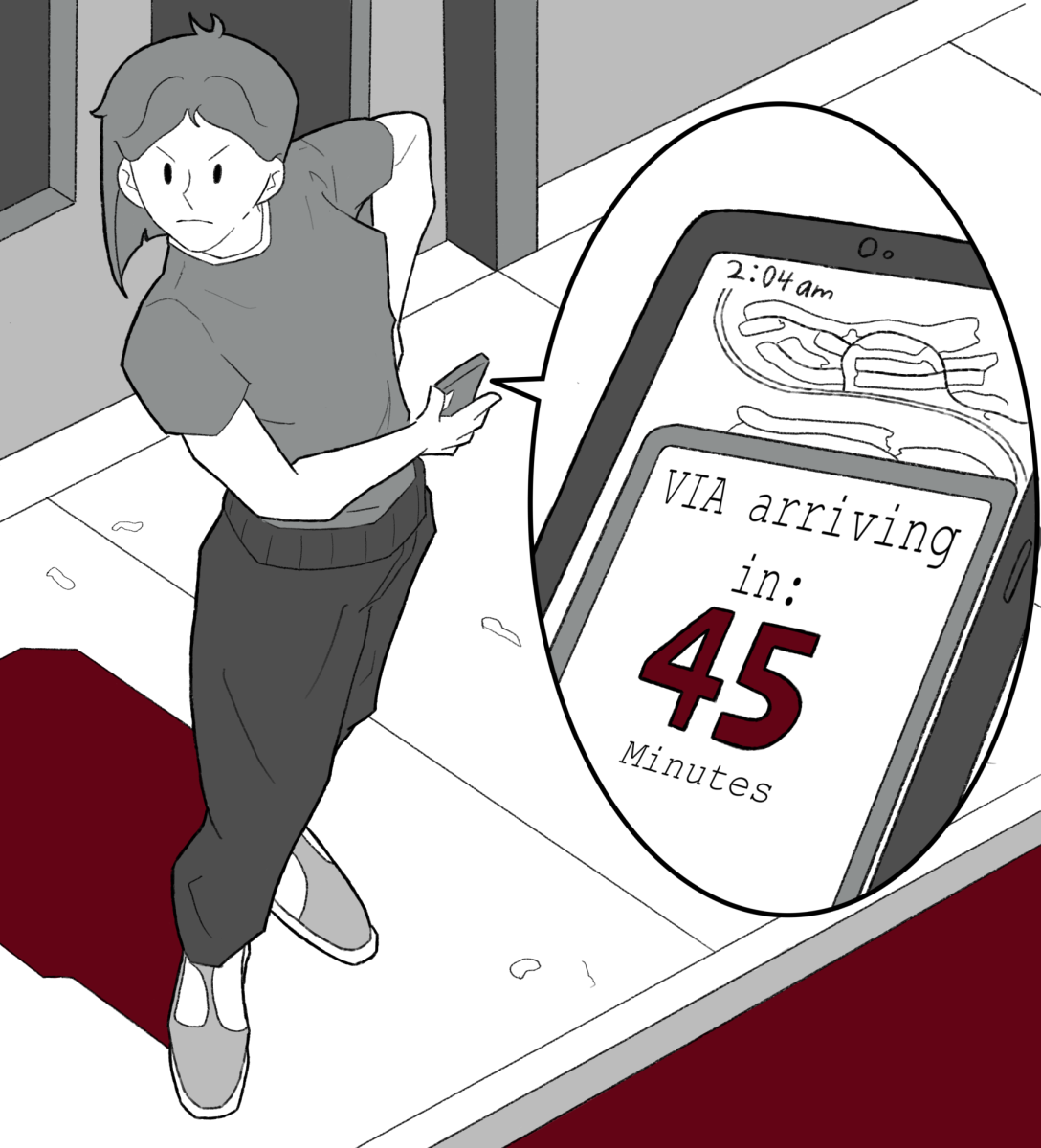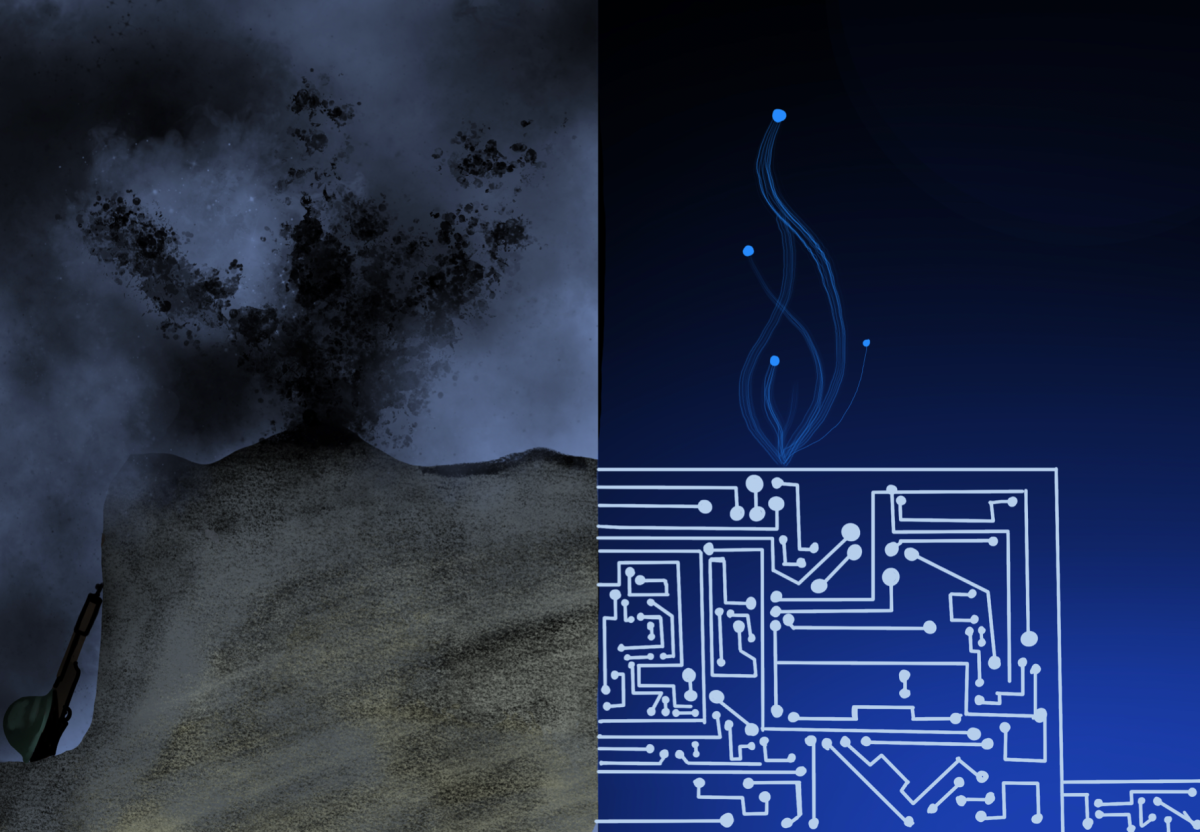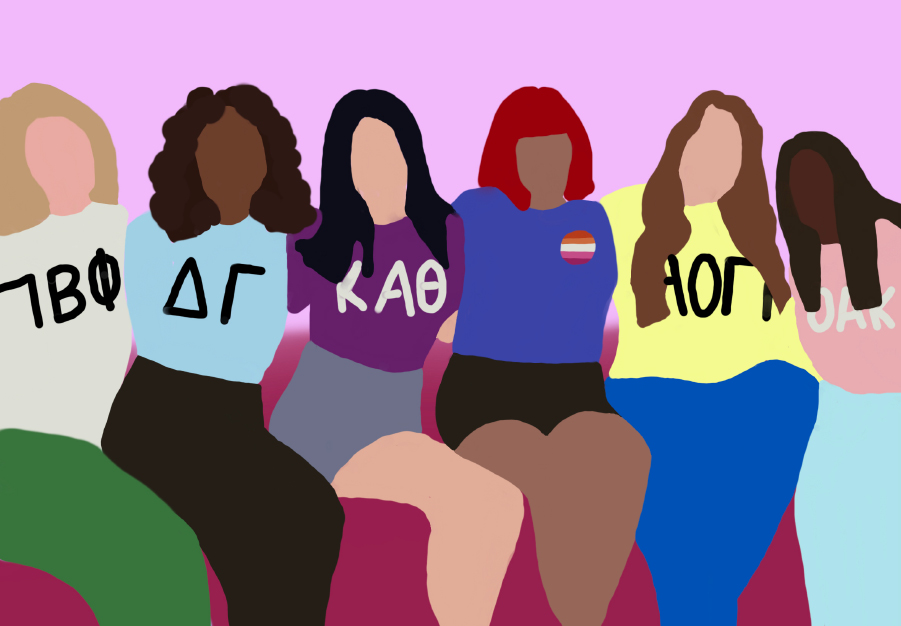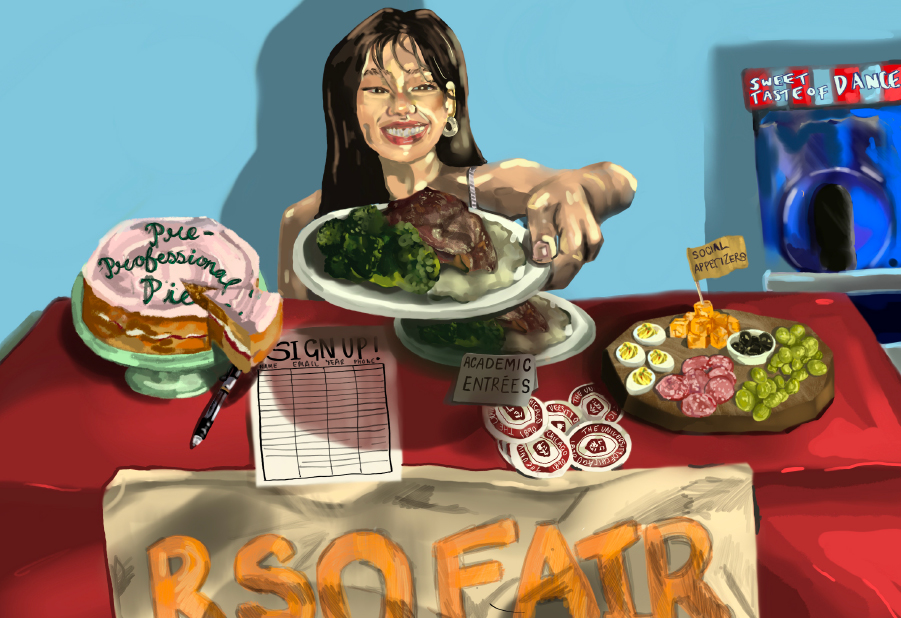In February 1926, UChicago alum Carter G. Woodson (A.B., A.M. 1908) announced the first Negro History Week for the Association for the Study of Negro Life and History, later rechristened Association for the Study of African American Life and History. What began as a single week to celebrate the history of African peoples in the U.S. during the birth month of both Frederick Douglass and Abraham Lincoln later developed into Black History Month as we know it today. In 1976, Gerald Ford recognized February as a month to “seize the opportunity to honor the too-often neglected accomplishments of Black Americans in every area of endeavor throughout our history.”
Woodson’s story is the kind of narrative about Black people that the University likes to spotlight: a non-threatening, establishment-centered vision. It is not about Black people growing the political consciousness for self-determination or liberation, but rather about vulnerable people who require institutions like the University to step in and effectively provide local austerity and charity measures. The University’s history with Black people, from its origins through the present, is nothing less than despicable. In order to save face and preserve the status of this institution, the University propagates a revisionist history of its relationship to the South Side. By consciously cherry-picking and uplifting a few figures in its lineage, like Woodson or Barack Obama, the University ignores its mass urban renewal efforts, which have destabilized Hyde Park, and its origins in enslaving Black people. Now that Black History Month is over, a thorough interrogation of how the University’s success has come at the expense of the narratives and communities of Black residents is an imperative step toward the University giving power back to the neighbors from whom it solely extracts and to whom it never gives back.
Even though the University has continued to assert that it was founded in 1890, a documented history traces the origins of the University of Chicago to 1856 and to Stephen Douglas—yes, that Stephen Douglas. In a publication in the Journal of African American History (also founded by Woodson), members of the Reparations at UChicago Working Group shared their findings that demonstrate that the University we all know would not have been developed were it not for the enslaved people that Douglas owned. By artificially separating the Old University of Chicago and the present-day University of Chicago, the school justifies its stance that the institution was founded in 1890 instead of recognizing its slave-owning origins.
Black History Month, over the years, has gone from recognizing the complex, exploitative relationship America has always had with Black people to lauding superheroes and immortalizing Black political leaders. It is not just how we are never told about the anti-capitalist, working-class analysis that MLK was developing right before he was assassinated; it’s the way that the U.S. manufactures certain Black “leaders” into invincible, perfect people while dehumanizing the masses of Black people with whom leaders like Malcolm X and Kwame Ture were organizing for liberation. Black History Month becomes, then, a space attempting to be apolitical or at least moderate in its position of centering voting rights while belittling the likes of the Black Panther Party, the Black Liberation Army, or the Haitian Revolution.
The University participates in this selective discussion of the history of Black people not only in our country, but also in its own history. The University will tout its civic engagement programs and COVID relief grants without ever conceding that its own practices are the reason why it even needs to take these “reparative” measures. UChicago’s history of supporting restrictive covenants during the 1930s and 1940s, later continued through gentrification efforts as the campus has expanded southward and into the Woodlawn neighborhood, is a part of the broader racist, anti-Black policies the University has supported and continues to support. The enforcement arm of these policies is the largest private police force in Chicago: the University of Chicago Police Department. #CareNotCops, which began in 2018, has joined forces with local grassroots groups like GoodKids MadCity to organize for the dissolution and abolition of this unaccountable, armed organization that disproportionately harasses Black residents.
But it’s not as if the University is isolated from Chicago’s history of crushing Black organizing efforts. The recent renewal of the discourse surrounding Fred Hampton after the release of the film Judas and the Black Messiah has facilitated a revisitation of how the Chicago Police Department (CPD) and the FBI assassinated Hampton and his fellow activist Mark Clark. There’s a common sentiment in the city that every single map of Chicago is identical, that disparities in education and health resources fall along the same class and race lines. For Black people in particular, Chicago’s racist policies of segregated housing and lack of access to mortgages during the 1960s resulted in the segregated city we live in today. Most recently, citizens learned that Mayor Lori Lightfoot used $281.5 million of the City’s federal COVID relief budget on CPD. Instead of expanding and building a thorough testing infrastructure or providing more access to relief checks, our city dumped money into an institution that survives by terrorizing Black and brown people.
If the University has refused to recognize its origins, refused to make substantive efforts to build or support affordable housing projects, and refused to defund or abolish its police department, what can we say about their treatment of Black people? What can be done regarding the contradictions for Black students like myself that go here knowing the University has caused such irreparable harm? While I cannot resolve these contradictions on my own, I organize and support the groups that are fighting for a better lived experience for Black folks in Chicago, like Assata’s Daughters, Ujimaa Medics, and GoodKids MadCity. I do this through my writing and reporting, seeking to tell the truth about Black folks here in Chicago and throughout over 400 years of Black people’s history in the United States’ settler-colonial empire.
I reflect constantly on the contradictions of being a Black student here. Yes, the University has practiced and continues to practice selective revisionism in its history and continues to expedite urban renewal, pricing out Black and brown residents of Hyde Park. Yes, the University runs a racist private policing apparatus that must be abolished. But if there’s anything we know about this institution’s history, it’s that we can no longer rely on it to seek to solve the problems it creates. Black History Month, however co-opted it is, still has the capacity for us to begin to thoroughly unveil the University’s disturbing relationship with Black people. It can function as a start, but never an end, toward our collectively organizing with Black residents. Meeting collective community needs is how we begin to divest from this institution, however entangled with it we all may be.
Noah Tesfaye is a second-year in the College.







